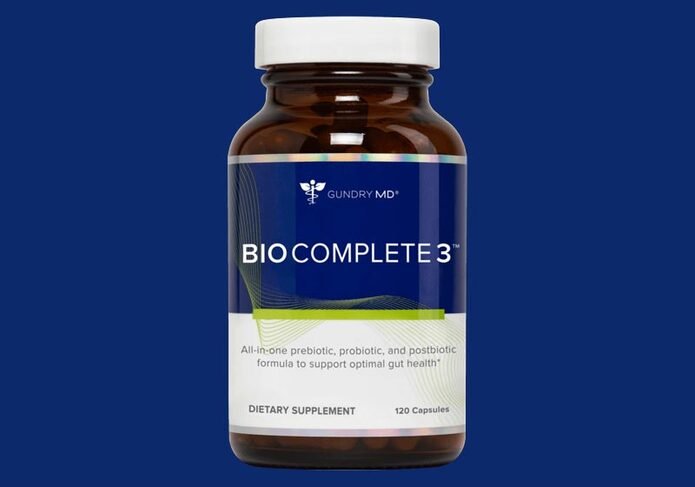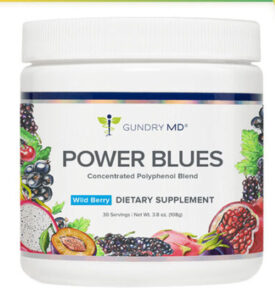Leaky Gut Syndrome is currently one of the most discussed health conditions in the medical community. Even though an increasing number of people are developing the issue, not all health practitioners recognize the condition which makes it more challenging to treat. For most people, getting treatment for a leaky gut is difficult. As a result, they consistently deal with intestinal pain, increased levels of inflammation, and problems in digestion. Now, Gundry MD’s Bio Complete 3 can provide a solution to every person who is struggling with the condition. With its unique blend, Bio Complete 3 combines pre-biotics, pro-biotics, and post-biotics. By using this supplement, a person can prevent leaky gut syndrome any complications associated with digestive health.
What Is Leaky Gut Syndrome?
Increased intestinal permeability or having a leaky gut syndrome refers to damage to the inner lining of the intestines. This lining covers more than four thousand square feet and plays a fundamental role in the absorption of the food that is passed and broken down in the intestines. Secondly, it also controls what nutrients and minerals can enter the bloodstream. In doing so, toxic substances are filtered out as well. Therefore, when a person’s intestinal lining is damaged, he or she is prone to experiencing various issues.
An increase in the intestine’s permeability or the formation of holes and cracks in the intestine can allow deadly pathogens, toxins, and even undigested food to enter the bloodstream. Not only can this alone cause a number of problems but also lead to alterations in the gut bacteria, which, in turn, causes major digestive issues-related complications.
In addition, research on gut microbiota has already highlighted its link with various other medical conditions. Initially, several diseases were associated with the gut only by ancient medicine and therapies. Now, studies have also confirmed that changes in gut bacteria can indeed cause many complications and even increase the risk of severe issues including autoimmune diseases.
However, it is still difficult to know who may have higher chances of developing issues related to the gut and the gut microflora. According to research, every person has a certain level of permeability in their intestinal lining. However, it does not cause any issues or increase the risk of another disease.
Read also: Holiday Shopping Likely to Increase Coronavirus Transmission Rates
In cases where a person has a more sensitive lining due to genetic factors, there may be a heightened risk of having issues or even leaky gut syndrome but this does not mean other people cannot have damage in their intestinal lining.
In fact, it has been stated that the increase in the cases of increased intestinal permeability is more to be blamed on modern-day lifestyles and diets rather than genetic disposition. Lack of exercise, having a diet low in nutrients and high in carbs and sugars, as well as smoking and alcohol consumption, can all contribute to leaky gut syndrome.
If left untreated, a damaged intestinal lining along with changes in the gut bacteria can increase the risk of many health conditions including irritable bowel syndrome, celiac, and Crohn’s disease. Some studies have also linked it to conditions such as type 2 diabetes, arthritis, lupus, and multiple sclerosis.

How Can Gundry MD Bio Complete 3 Prevent Leaky Gut Syndrome?
Bio Complete 3 is one of Gundry MD’s most popular dietary supplements up till now due to its powerful formula that has helped a big number of people struggling with increased intestinal permeability and associated complications. Bio Complete 3 has been developed using biotics nutritional strategies, which means that the supplement aims to restore gut health by improving gut microflora.
The strategies usually comprise of using prebiotics, probiotics, and postbiotics in order to alter the gut bacteria in a way that can help in the management of various health conditions including a leaky gut as well as prevent further damage to the health from the increased permeability.
In Bio Complete 3, a blend of all three of these ingredients is used in order to boost gut health and stop further damage to the intestinal lining. Additionally, the unique formula can also help in fortifying the immune system of a person taking the supplement as gut bacteria also plays a fundamental role in building immune response and protecting from pathogens including viruses, bacteria, and fungi.
This is why Gundry MD also calls Bio Complete 3 a ‘3-Pronged Defense’ because of its combination of pre, pro, and post biotics. All three of these ingredients can help in different ways. For example, probiotics can boost gut bacteria and prebiotics can facilitate by acting as fuel for the bacteria. Additionally, postbiotics can specifically help in managing complications of the leaky gut syndrome and stop further damage to the intestinal lining.
What are the Ingredients of Bio Complete 3?
As mentioned before, the ingredients and their blend are what makes Bio Complete 3 highly effective. The formula mainly comprises of three main ingredients which are as follows:
Tributyrin (1000 mg)
Tributyrin is one of the main ingredients used in Bio Complete 3 which can significantly help with weight loss and obesity. In addition, studies have also shown that it can improve insulin resistance and its effects on the body.
Sunfiber® (200 mg)
Sunfiber is a dietary fiber that can offer various health benefits including weight loss and maintenance, boosting gut microflora, and its balance in the intestinal tract.
Bacillus Coagulans (16 mg)
Bacillus Coagulans is a form of lactic acid that is known to help with various health conditions related to digestion. Studies have shown that it can relieve abdominal pain, cramping, nausea, vomiting, bloating, and diarrhea.
Who Can Use Bio Complete 3?
According to Gundry MD, Bio Complete 3 can help any person struggling with issues associated with digestion and gut health. In addition, the supplement’s one hundred percent natural formula can also have various other benefits including higher levels of energy, better control over cravings and appetite as well as better weight management.
Therefore, people who are also suffering from digestive issues, weight management, increased intestinal permeability, can all use Gundry MD’s Bio Complete 3 as it is highly effective and does not cause any serious adverse effects on the health.
The company also ensures that it uses only one hundred percent natural ingredients in its products, which are also tested separately by a third party separately before being launched in the market. Therefore, there is no need to worry as it is highly unlikely to lead to any negative health outcomes.
How to Use and Buy Bio Complete 3?
According to Gundry MD, the effects of taking Bio Complete 3 can be seen after a few weeks only by taking it no more than twice a day. One capsule of the supplement should be taken before a meal at two separate times of the day. The company suggests taking one before breakfast and the other before dinner.
In order to get Bio Complete 3, simply visit the website of Gundry MD as an order can be placed directly from there. Another good news is that even though it has become widely popular, the price of the supplement has been kept affordable.
One bottle of Bio Complete 3 costs only $69.95. In addition, there are also offers and package deals by Gundry MD from time to time, which lower the price even further. Shipment on all orders above $60 is free all over the US. In case a user is not satisfied with his or her results, the company also offers a ninety days money-back guarantee, which gives all the more reasons to buy and try the Bio Complete 3.
The post How to Use Gundry MD Bio Complete 3 to Prevent Leaky Gut Syndrome? appeared first on Spark Health MD.



 This occurs in our mesolimbic dopamine system which is below the level of thought. Our brain is hard-wired to respond to reward and the mesolimbic system doesn’t know what is okay or not okay. It just “likes”.
This occurs in our mesolimbic dopamine system which is below the level of thought. Our brain is hard-wired to respond to reward and the mesolimbic system doesn’t know what is okay or not okay. It just “likes”.
